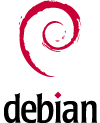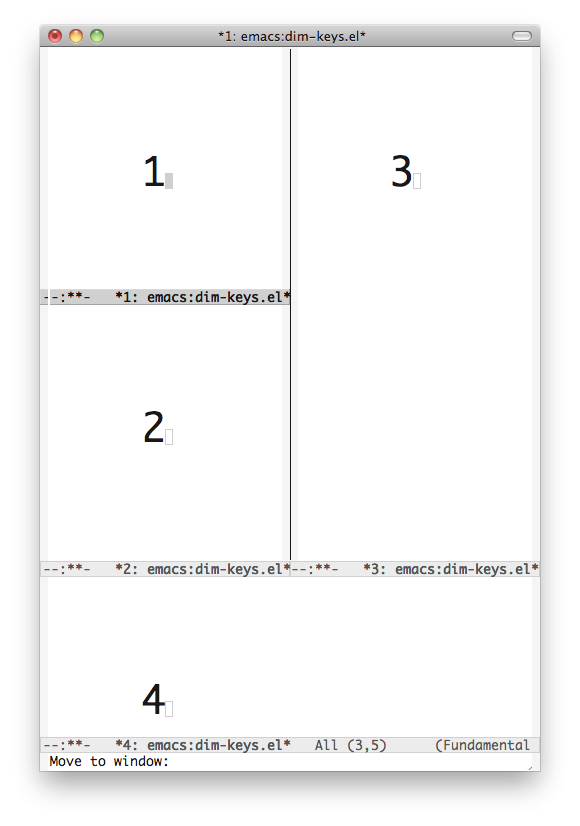
I’ve been using emacs for a long time, and a long time it took me to consider learning Emacs Lisp. Before that, I didn’t trust my level of understanding enough to be comfortable in managing my setup efficiently.
One of the main problems of setting up Emacs is that not only you tend to accumulate so many tricks from EmacsWiki and blog posts that your .emacs has to grow to a full ~/.

Thanks to amazing readers of planet emacsen, two annoyances of switch-window.el have already been fixed! The first is that handling of C-g isn’t exactly an option after all, and the other is that you want to avoid the buffer creation in the simple cases (1 or 2 windows only), because it’s the usual case.
I’ve received code to handle the second case, that I mostly merged. Thanks a lot guys, the new version is on emacswiki already!

So it’s Sunday and I’m thinking I’ll get into el-get sometime later. Now is the time to present dim-switch-window.el which implements a visual C-x o. I know of only one way to present a visual effect, and that’s with a screenshot:
So as you can see, it’s all about showing a big number in each window, tweaking each window’s name, and waiting till the user press one of the expected key — or timeout and stay on the same window as before C-x o.

If you don’t know about ClusterSSH, it’s a project that builds on M-x term and ssh to offer a nice and simple way to open remote terminals. It’s available in ELPA and developed at github cssh repository.
The default binding is C-= and asks for the name of the server to connect to, in the minibuffer, with completion. The host list used for the completion comes from tramp and is pretty complete, all the more if you’ve setup ~/.

Those are my two all times favorite Open Source Software. Or Free Software in the GNU sense of the world, as both the BSD and the GPL are labeled free there. Even if I prefer the The Debian Free Software Guidelines as a global definition and the WTFPL license. But that’s a digression.
I think that Emacs and PostgreSQL do share a lot in common. I’d begin with the documentation, which quality is amazing for both projects.
